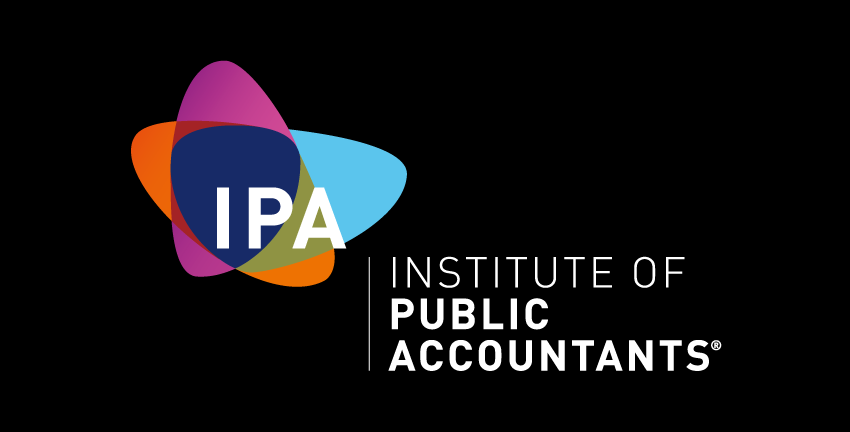
Remember when you were just dreaming of running your own business? Perhaps you were thinking about being your own boss, gaining financial freedom, and pursuing your passion.
Did your dreams include tax preparation? Maybe not, but tax preparation is really part of being a business owner. If you feel dizzy just thinking about it, this tax preparation guide might help you stay on your feet and breeze through the process.
An Overview of Tax Preparation for Small Business Owners
Tax preparation is the process of organising and submitting your financial information to fulfill your tax obligations. It involves gathering and organising all relevant documents, calculating your taxable income, and completing the required tax forms.
In Australia, tax obligations typically include:
- Income tax
- Goods and Services Tax (GST)
- Pay As You Go (PAYG) instalments
Make sure you get professional advice about other taxes and obligations that you need to comply with.
Tax Preparation: What’s in It for You?
Without an in-house tax expert or accountant, small business tax preparation can feel burdensome, but remember:
- You can save money when you claim all deductions and credits you are entitled to.
- By filing your taxes correctly, your business can be protected from potential audits and penalties.
- The tax preparation process is your chance to get organised and get a handle on your finances.
- Tax preparation can help you make better financial and business decisions.
You will also find later in this article one highly beneficial tip to make your tax preparation so much easier.
Determine Your Tax Obligations
Before diving into the tax preparation process, you need to know your specific tax obligations. Every business is unique, and so are its tax obligations. These are determined by a few factors, including the following:
· Your Business Structure
The type of business structure you choose will determine the types of taxes you owe. For example, sole traders and partnerships are generally liable for personal income tax on their business income, while companies are liable for corporate income tax.
· The Type of Industry You’re In
The industry you’re in can also affect your tax obligations. For example, GST applies to sales of most goods and services consumed in Australia. GST now also applies to sales of imported services and digital products to Australian resident consumers, and also to sales to consumers of imported low value goods.
· Whether You Have Employees
If you have employees, you’ll be responsible for withholding income tax and superannuation from their wages. You may also be liable for payroll tax in some states and territories.
Understanding your specific obligations is crucial to ensure you’re not overpaying or underpaying. If in doubt, you may refer to the Australian Taxation Office (ATO) website or contact Gold Coast tax preparation services like Wear Accountants.
Your 4-Step Tax Preparation Process in Australia
Tax preparation is less overwhelming than it appears, especially with this simple guide:
Step 1: Maintain Accurate Financial Records
The first step in tax preparation is keeping accurate and comprehensive records throughout the year. This includes:
- Sales records: Maintain a clear record of all income your business has generated. This could be in the form of sales invoices or contracts.
- Expense receipts: Keep all receipts or invoices for business expenses. For example, if you run a café, this could include receipts for coffee beans, milk, cleaning supplies, and rental payments.
- Payroll records: Document all wage payments, superannuation details, tax withheld, and fringe benefits provided if you have employees.
- Bank statements: Retain copies of your business bank account statements. They offer a consolidated record of your income and expenditure.
Make it a policy to keep accurate and complete records. Continuous record-keeping provides a solid foundation for your tax preparation efforts, helping ensure you don’t overlook any crucial information at tax time.
Step 2: Classify Your Expenses
In Australia, not all expenses are created equal. Some costs may be tax-deductible – you can subtract them from your income to reduce your overall tax liability. Examples include operating expenses such as advertising, rent, and salaries.
However, costs like capital expenses, equipment, or property purchases are generally not immediately deductible but may be depreciated over time.
Take the time to understand which of your expenses are tax-deductible and categorise them accordingly.
Step 3: Calculate Your Taxable Income
Once you’ve accurately recorded and classified your income and expenses, it’s time to calculate your taxable income. This is done by subtracting your allowable deductions (the expenses that you’ve classified as tax-deductible) from your assessable income (all income that is subject to tax), so:
ASSESSABLE INCOME – ALLOWABLE DEDUCTIONS = TAXABLE INCOME
For example, if your business made $200,000 during the financial year and you had $50,000 in allowable deductions, your taxable income would be $150,000. This is the amount on which your tax will be calculated.
Next, how much tax do you owe? Tax obligations may differ as previously discussed, but the general formula is:
TAXABLE INCOME x TAX RATE % = TAX PAYABLE
Note that if your small business has an annual turnover of less than $10 million, you may be able to get small business tax concessions from the ATO. (See their website for the tax concessions available, eligibility and relevant tax changes.)
Step 4: Complete and Lodge Your Tax Return
Finally, complete your tax return, summarising your taxable income and any tax offsets or credits you’re entitled to. This step could vary in detail depending on your business structure and other factors.
You can lodge your tax return yourself, but it’s often beneficial to use a tax preparation service. An accountant specialising in small business can ensure that your return is accurate, comprehensive, and lodged on time, helping you avoid penalties and maximise any refunds.
Find the Right Tax Accountants Gold Coast-side
A tax professional can be highly beneficial to your business in terms of time, expertise, and cost. Here are quick tips for finding tax experts who can help with your tax preparation:
- Check Registration: The ATO recommends seeking advice from a tax professional or agent who is registered with the Tax Practitioners Board (TPB) by checking their public register.
- Seek Recommendations: Ask fellow small business owners, colleagues, or industry associations for recommendations on reputable tax preparation services. Word-of-mouth referrals often provide valuable insights and peace of mind.
- Look for Specialised Expertise: Ensure that the accountants you choose have experience working with small businesses in the Gold Coast. They should be knowledgeable about the specific tax laws and regulations that apply to your industry.
- Evaluate Qualifications: Check the credentials and qualifications of the tax professionals working at the service. Look for certifications such as a member of the Institute of Public Accountants, Certified Public Accountant (CPA) or Chartered Accountant (CA) to ensure their expertise and adherence to professional standards.
- Consider Service Offerings: Evaluate the range of services provided by the tax consultants. Do they also offer tax planning, financial consulting, or bookkeeping? A comprehensive service can provide long-term benefits for your business.
Tax Preparation Assistance is Always Available
Tax preparation is a year-long process. When treated as a once-a-year task, it can become dizzying and burdensome. But by being proactive and organised, you can have less stress and more time to focus on growing your business.
By using the right approach and getting assistance, tax preparation can be manageable. Help is always available for small business owners, whether via ATO or a Gold Coast accountant who has been working with small businesses for decades.
If you wish to explore working with tax preparation experts, contact Wear Accountants today or schedule a discovery call to find out how we can help you.


